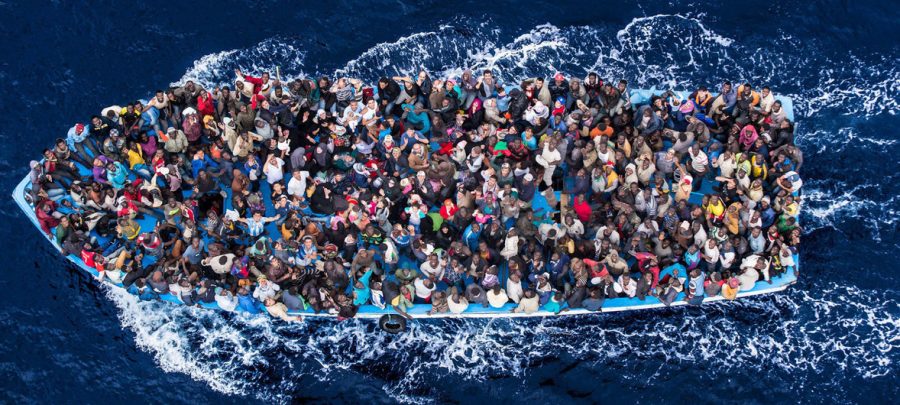Refugees: Who Are They?
March 31, 2022
What is a refugee? According to the International Rescue Committee (IRC), “Refugees are people fleeing violence and persecution—in Syria, Iraq, Eritrea, and other countries in crisis. They are seeking safety and the chance to move their lives forward.”
Basically, a refugee is someone who is fleeing violence and maybe war in their home country. According to the IRC, “The United States has a long tradition of sheltering those fleeing conflict and persecution. Once refugees have been identified by the United Nations refugee agency and cleared for resettlement, the U.S. government works with the IRC and eight other national resettlement agencies to help them restart their lives in America.” The refugees may be placed in a city or town where they have relatives, or someplace where people share their language and culture. However, as Legal U.S. residents, they may live in any city that they choose.
For this article I interviewed Madiha Haideri, to whom I asked a few questions.
First off, I asked her what country her family originated from. To which she responded with, “We came from Pakistan (Quetta) although we originate from Afghanistan.”
I then asked how hard it actually is to make the move from a country in crisis and come to the United States, to which she responded, “Most of the families make a case to present to some sort of an organization that will eventually help them flee. It’s important to point out that some cases do get rejected which then results in refugees’ deportation. To put it in a different perspective, I will use my family’s experience as an example. We had to leave our country and move to Indonesia. We were lucky because we only had to stay in Indonesia for about 3-4 years. And then we had to go through some more procedures and interviews before our case was finalized for America. It’s important to keep in mind that in those 3-4 years, we didn’t have any sort of income because refugees were not allowed to work in Indonesia. And when we arrived here, situations were just as difficult due to the fact that we didn’t have ANY relatives here nor people we knew. The situation obviously got better but for the first couple of months, it was extremely difficult for us.” That’s really eye opening. I’m sure that many people think of it as just jumping on a plane with a passport, but obviously it’s much more complicated than that.
My final question was what led to their family’s decision to come to Turlock. Her response was almost surprising, although it does give really great insight as to what has to happen for it all to work out well. She responded with, “The thing is that it wasn’t even our decision to come to Turlock. The only thing we knew about the U.S was that it was a big country. That’s it. So with that in mind, our luggages in our hands, and our trust in the IRC, we were brought here.”
She also included that while their family was in Indonesia they met some families who had been there trying to get to the U.S. before them, and are still there. Her family has been in the United States for 5 years now, so what must be going through the heads of the people who haven’t been able to get here yet?
Overall, it sounds like a long, difficult process getting away from a country in crisis and coming to the United States. If it is that difficult right now, just imagine how difficult it would be without the help of groups such as the IRC and all of their donors.
If you would like more information regarding refugees, be sure to check out the IRC website by clicking here.
